Beirut’s last public beach: residents fear privatisation of Ramlet al-Baida
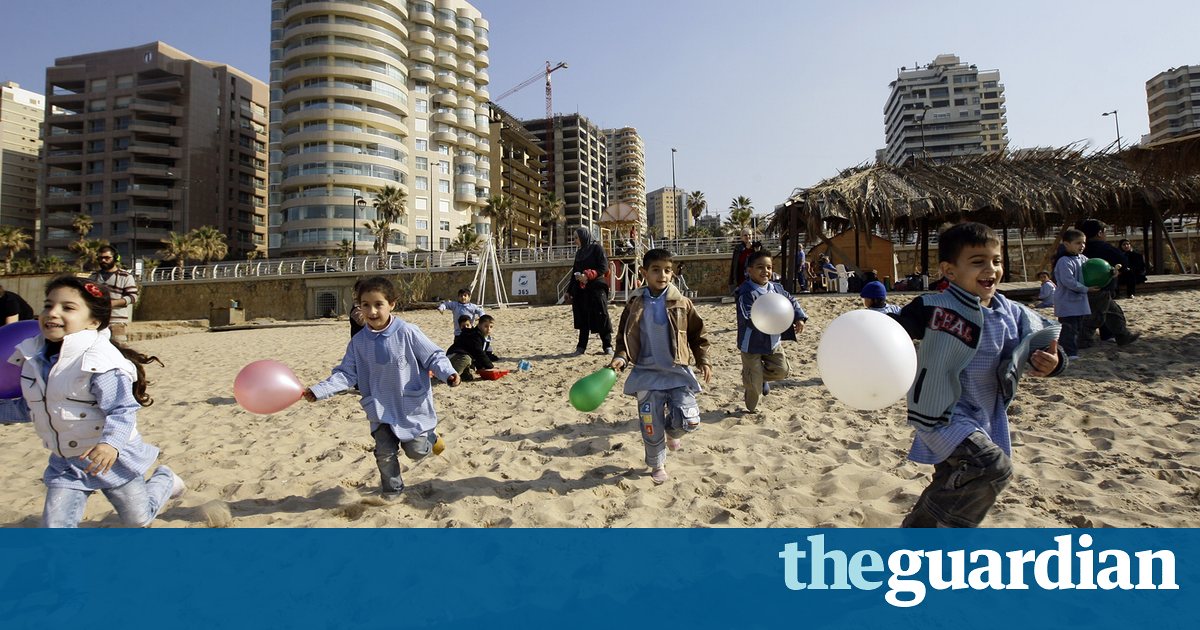
A private development close to Beiruts last remaining public beach is sparking anger among residents who fear companies will leave nothing for the poor and middle classes encroaching further into a city that already lacks public space
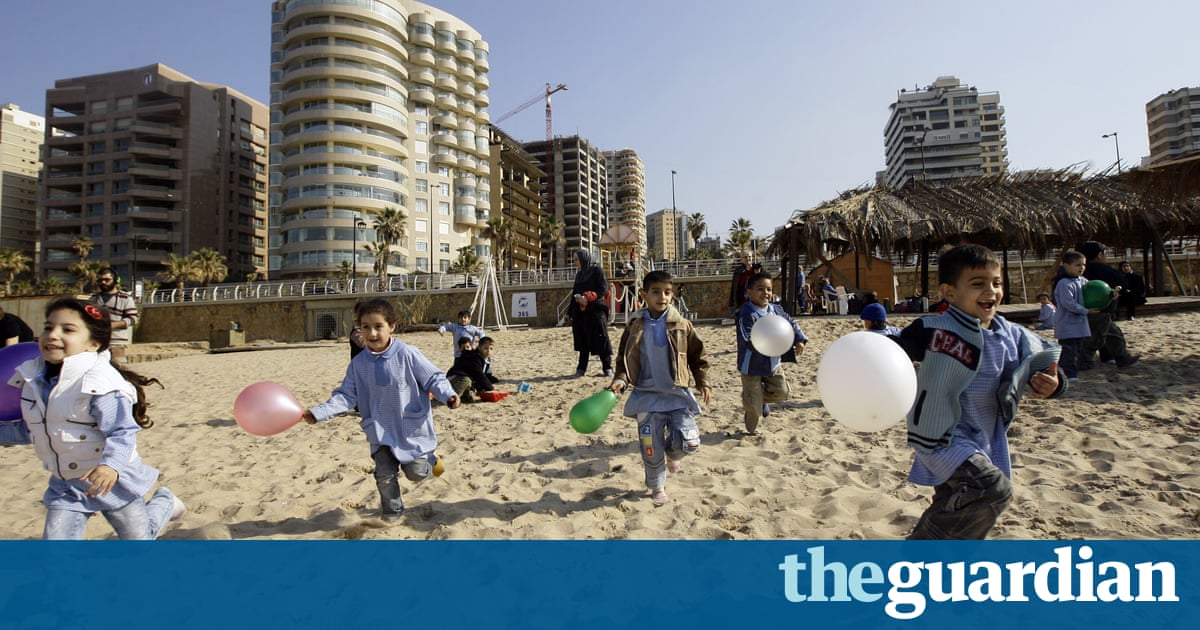
Take a stroll down the golden sands of Ramlet al-Baida, Beiruts last public beach, and youll see families fishing and smoking shisha in ramshackle palm frond cabanas, boys kicking footballs under battered lamp-posts, and children building sandcastles in the waves. It is a rare outlet in a city where public spaces are few and far between. But at the beachs southern end, the scene abruptly gives way to looming cranes and men in hard hats driving rebars into a rising edifice of concrete.
The development, known as the Eden Bay resort a more than 5,000 sq metre project billed by its website as a sanctuary of luxury and refinement began constructionlast year, sparking outrage among beachgoers, civil society activists and public space advocates. The company behind the project says they have complied with the law and are set to inject vital investment and hundreds of jobs into Lebanons bruised economy. But many of the poor and middle class Beirutis who have been going to the beach for generations see it as an encroachment on one of the few public spaces they have left.
Poor people are trash here, says Hisham Hamdan, 59, glancing at the development as he lounges with a lunch of fish, hummus and vegetables alongside half a dozen friends. Its Ali Baba and his 40 thieves, he adds, listing a few prominent politicians and businessmen. Theyre mafiosos, all of them.
He plucks a cane topped with a bust of Nefertiti from the sand and gestures toward a row of apartment buildings. Look, he says. You know how much that is? Four million dollars. And everyone here has nothing. (Some nearby properties do indeed sell for that much.)
A little way up the beach, Abu Rami, a 43-year-old department store worker who asked to be identified by his nickname so he could speak freely, kicks a football with his son. When I was a bachelor I used to come out to Ramlet al-Baida every day, he says. Id run down here with my friends around six or seven and wed play football. Wed even come out and play football at night wed swim and play and stay out late. Everyone has memories like that.
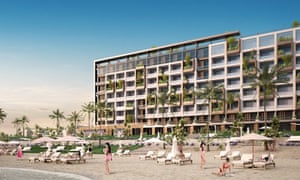
Now, he says, people are afraid private companies will overwhelm the beach, leaving nothing for the citys poorer people and middle classes. The way I see it, the people here need to come out and protest against these companies this is repression against the poor.
The roots of anger and suspicion go much deeper than one resort. For a city its size, Beirut has a shocking lack of public space. There is just one major central park Horsh Beirut, which was recently reopened to the public after years of closure while miles of Mediterranean coast are covered with luxury apartments, clubs, restaurants, hotels and resorts that charge hefty entrance fees. For the many Beirutis living on just a few hundred dollars a month, the price to bring a family into one of these clubs could amount to a major chunk of a months salary. If youre poor, you dont always have the right to enjoy the outdoors.
Mohammad Ayoub, executive director of Nahnoo, a civil society group that advocated to reopen Horsh Beirut and is now working to revitalise Ramlet al-Baida, compares the citys situation to a house without a living room the space where a family comes together.
The salon is where you have to learn how to deal with your differences, because everybody owns it. You cant watch TV alone, so you need to discuss what to do. It teaches you dialogue, it teaches you democracy, it makes you feel a sense of belonging. This is why its important.
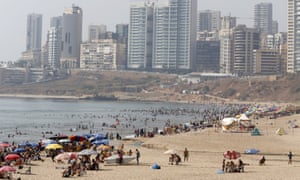
Such spaces are especially vital given the legacy of sectarian division left by the countrys 1975-90 civil war, he says. But a lack of sufficient public regulation has allowed developers to chip away at such spaces over the years, leaving only a handful open to the public. What do we own in the city? Ayoub says. We own nothing. Why are we here in the city; what can we do in the city? You have to pay for everything.
As one of the few exceptions, Ramlet al-Baida (white sands in Arabic) has long been a magnet for suspicions about developers intentions. Activists point to a 1925 decree declaring everything up to the highest point the waves reach to be public property. However, since the 1960s, a string of exemptions, loopholes, violations and favouritism bestowed upon developers has gradually eaten away at the coastline and left the beach one of the last bastions of free access, they say. The nearby Dalieh outcrop is also under threat, although construction hasnt started.
In a cluttered and dimly lit office in central Beirut, Ali Darwish, head of Green Line, a Lebanese environmentalist group, runs his finger over a satellite image of Ramlet al-Baida, ticking off the plots where he says private developers are bent on building. Ask any older Beiruti above 50 or 60 and they wont even know that this is [privately] owned, he says. Its enshrined, its anchored in our brains that this is public land.
Back in the late 90s, Darwish says his group discovered a plan which showed that former prime minister Rafik Hariri famous for his extensive postwar real estate dealings wanted to turn the area into a marina, an effort quashed by public lobbying. Controversy flared up again in 2015 when a judge permittedtwo companies owning plots on the beachto close them to the public.The judge reversed her decision, but activists were on high alert.
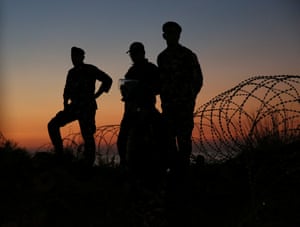
Amid the atmosphere of distrust, civil society leaders have trouble seeing the Eden Bay development as anything less than a precursor to a full-scale takeover. Green Line has filed a suit to stop the project but pending a decision, construction has continued. If Eden Bay succeeds, activists believe other developers will undoubtedly follow. Darwish says one plot owner has already filed for a building permit a little further up the beach: This is the door-opener.
Achour Development expresses a very different view of the situation. In an office overlooking downtown Beirut nicknamed Solidere after the company Hariri founded before his 2005 assassination its lawyer Bahij Abou Mjahed, flips through a thick folder of documents which, he says, definitively prove the companys right to build on the land.
An assistant brings copies of the plots ownership records, the projects building permit, clearance from the order of engineers, and a map showing that the development is hundreds of metres from the part of the beach considered public.
Given regional turmoil, the new resort represents a courageous and ambitious project that will add hundreds of jobs to an economy badly in need of them, Abou Mjahed says. Lebanese departments are travelling all over the world to encourage investors to invest in Lebanon. If we create a war against this project, which has all the legal documents and all the legal permissions and permits and decisions, whats the message were sending to the investor? Come to Lebanon and invest, and in a moment somebody will decide that its a public area and stop you?
He says objections to the project are rooted in misunderstandings and, in some cases, conspiracy theories that assume the entire Lebanese government is arrayed against the public. Its against the laws of nature.
Back at Ramlet al-Baida, the nuances of the legal debate are of little interest to most beachgoers; many take it as a given that the system is rigged against them. There are politicians who are monopolising everything. They come down and take money and, so long, its over. They can do what they want, says Abu Rami, the department store worker. The Lebanese people need to stand together. Youll find people coming out and demonstrating against this repression, this theft three quarters of people are with them but they stay in their homes.
Why? Maybe people are distracted, he says. Theyre busy just getting by.
Follow Guardian Cities on Twitter and Facebook to join the discussion, and explore our archive here